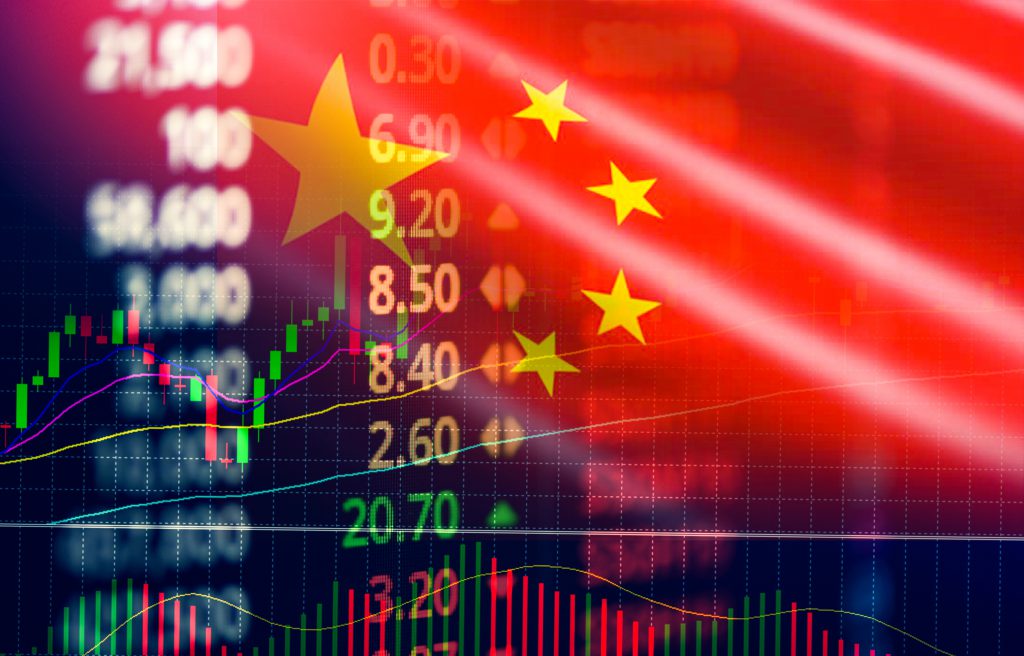
In recent developments, the robustness of China’s shadow banking industry has come under scrutiny as one of its largest private wealth managers and real estate developers, Zhongzhi Enterprise Group Co., has defaulted on payments for several high-yield products. With assets totaling 1 trillion yuan ($138 billion), the impact of this misstep is sending ripples throughout the financial sector.
A Glimpse into the Crisis
Late last Friday, a startling revelation emerged as three firms announced their failure to secure payments on products associated with the Zhongzhi Enterprise Group Co. This situation has intensified prevailing worries about China’s massive $2.9 trillion trust industry—a conglomerate of commercial and investment banking, private equity, and wealth management functions. This vital sector utilises household savings for loans and investments across real estate, stocks, bonds, and commodities.
Moreover, the current anxieties are amplified by the fragile state of China’s economy and financial markets especially after the economy went into deflation and the tenth consecutive drop in producer prices . The nation’s leading developer, Country Garden Holdings Co., teeters on the brink of bankruptcy. Concurrently, the lending rates of Chinese banks have plummeted to their lowest since 2009.
These concerning developments have affected the stock market, with the CSI 300 Index reporting its most significant loss since the previous October. The yuan, China’s currency, has also experienced depreciation.
Historically, China’s trust industry was the go-to for the affluent seeking significant returns on their investments. However, its reputation has been tarnished by a series of missed payments, especially those linked to real estate. Regulators are increasingly alarmed, striving to curtail its expanding reach.
Two companies, Nacity Property Service Co. and KBC Corp., were the first to disclose the delayed payments by Zhongrong International Trust Co. In a disclosure to the Shanghai Stock Exchange, KBC linked the deferred payments to an investment of 60 million yuan with Zhongrong Trust. Another undisclosed company has also reported overdue payments on a wealth product from a Zhongzhi subsidiary and is contemplating legal recourse for investment recovery.
While the National Financial Regulatory Administration and Zhongrong Trust remain tight-lipped, Zhongrong Trust has acknowledged the existence of counterfeit letters on social media claiming the company’s cessation of operations.
Zhongzhi, hailed by Chinese media as a leading private financial holding group, was the brainchild of Xie Zhikun. Under his leadership, Zhongzhi expanded its presence across trust companies, private equity, and wealth management. Sadly, Xie passed away in 2021 due to a heart attack. The group holds significant stakes in numerous financial entities and also boasts an impressive 4.5 billion tons of coal reserves.
The Bigger Picture: China’s Property Sector
With the country’s property industry in question, trust firms like Zhongrong Trust and MinMetals Trust Co. have gambled on unfinished real estate projects, hoping these ventures will eventually generate the revenue to clear their dues.
The current challenges facing China have broader implications than just immediate financial distress. This situation is likely to heavily weigh on overall sentiment, indicating potential underlying turbulence in the Chinese economy. The intertwining of the economy means that if one domino falls, it can set off a chain reaction and could very well pull the entire economy into a downward spiral.
In response to its current economic challenges, China is anticipated to ease financial policies, aiming to enhance market liquidity through potential reductions in interest rates and the introduction of monetary tools to encourage borrowing. Concurrently, there’s an expectation of a push towards infrastructure development by relaxing borrowing limits, intending to stimulate construction and spur short-term economic growth. Any liquidity boost should help improve short-term sentiment for the markets, making the Hang Seng an interesting index to follow.
Ivailo Chaushev
Chief Market Analyst at Deltastock
Risk warning:
This article is for information purposes only. It does not post a buy or sell recommendation for any of the financial instruments herein analysed.
Deltastock AD assumes no responsibility for errors, inaccuracies or omissions in these materials, nor shall it be liable for damages arising out of any person’s reliance upon the information on this page.
60% of retail investor accounts lose money when trading CFDs with this provider.